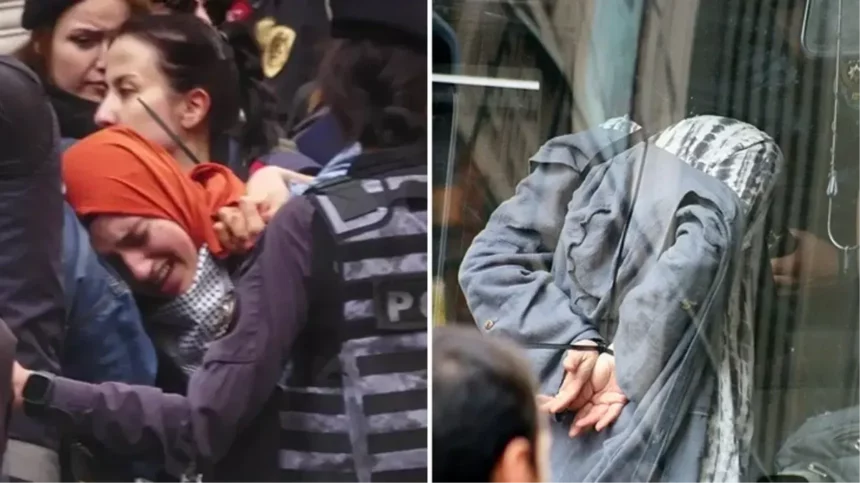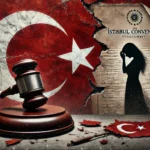On October 4, Turkish police temporarily detained several activists protesting Turkey’s ongoing trade relations with Israel during President Recep Tayyip Erdoğan’s appearance at Teknofest, the Turkish technology and aerospace fair held in Adana, as reported by Cumhuriyet daily. The protesters, affiliated with the group “Direniş Çadırı” (Resistance Tent), accused the government of betraying the Palestinian cause by maintaining economic ties with Israel despite official statements denouncing the country.
During his speech at the event, Erdoğan reiterated strong rhetoric against Israel, claiming that the country “has its eyes on Anatolian lands,” a statement that sparked renewed attention due to its aggressive tone. However, the activists were more focused on tangible policy contradictions, such as the persistence of trade between Turkish businesses and Israeli entities, including oil shipments.
The protesters chanted slogans like, “Trade with Israel is a betrayal to Palestine,” and attempted to hold up banners. The group later reported on social media that the police intervened and detained several members for questioning. “Our friends’ protest against the ongoing trade relations with Israel and oil shipments, when the President of the Republic was in attendance, was violently intervened! Our friends are being taken to the police station,” the group announced via their Twitter account.
The activists were released later the same day, but tensions escalated further the following day when members of the same group attempted to protest in front of the presidential palace in Ankara. “Direniş Çadırı” stated on social media that at least two members were detained on October 5 while protesting the government’s continued business dealings with Israel.
“Israeli shipments continue despite public outcry. We do not accept what is being done to our friends, who are only exercising their democratic right to protest,” the group declared, demanding the immediate release of the detained activists.
Official Stance vs. Ground Reality:
Turkey officially suspended all trade with Israel in May 2024, following a wave of public criticism and a government announcement condemning Israel’s actions. The move was widely seen as part of Ankara’s effort to align itself more closely with pro-Palestinian sentiments amidst heightened regional tensions. The Turkish government even submitted a request to join South Africa’s case against Israel at the International Court of Justice, accusing it of committing genocide.
However, activists argue that these official gestures are contradicted by ongoing trade activities carried out by several private companies in Turkey, some of which maintain direct and indirect commercial ties with Israel. This discrepancy has led to a series of public protests, with activists accusing the government of failing to back its strong anti-Israel rhetoric with consistent policy enforcement.
The mixed messages have led to confusion and anger among various segments of Turkish society, who view the situation as evidence of the government’s duplicity. “If the government is serious about its stance, then why are these companies still allowed to operate and trade with Israel?” one activist questioned during a recent protest.
Turkey’s complex relationship with Israel has been a contentious issue in domestic and international politics. Despite high-profile political rhetoric denouncing Israel, economic and strategic ties have persisted under the surface. The Turkish leadership’s dual approach of condemning Israel while maintaining certain economic relations reflects its broader foreign policy strategy of balancing domestic political demands with external economic and diplomatic realities.
As protests against these contradictions grow, the government will likely face increasing pressure to provide clarity on its policies and take more concrete actions, particularly if public dissent continues to gain momentum.
With activists already mobilizing and taking to the streets in cities like Adana and Ankara, the issue of Turkish-Israeli trade relations is set to remain a flashpoint for months to come, testing both the government’s resolve and its ability to reconcile rhetoric with reality.



